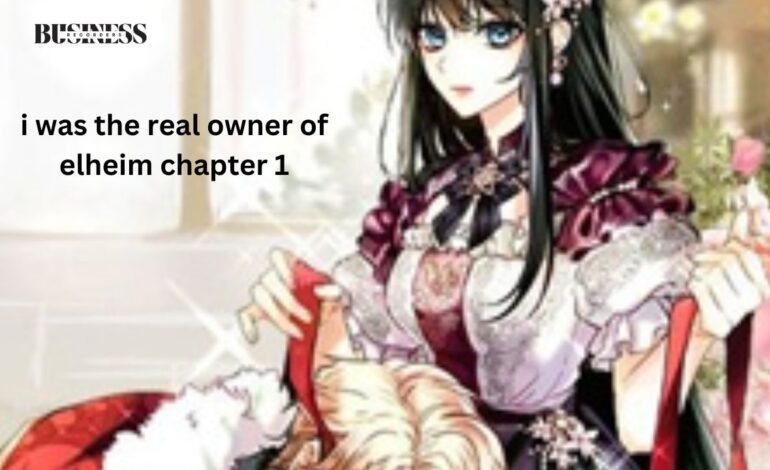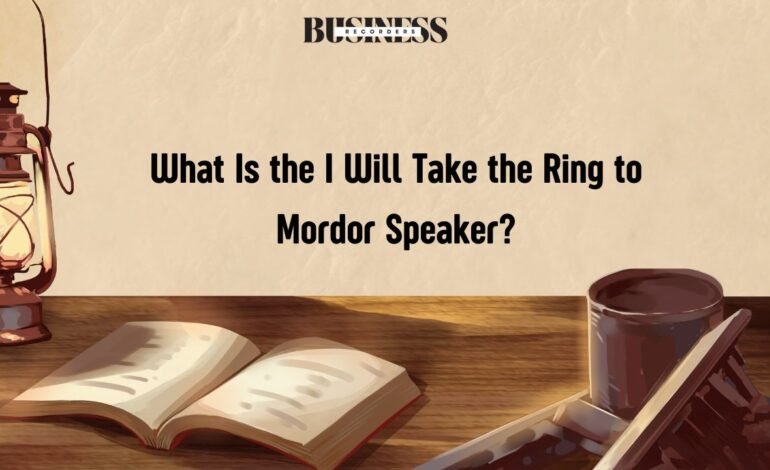
I Was the Real Owner of Elheim Chapter 1
Elheim is a captivating realm that exists in the world of fiction, serving as the setting for many stories filled with magic, adventure, and rich character development. When I say, “I was the real owner of Elheim chapter 1,” it reflects my profound personal connection to the story and its inhabitants. The allure of Elheim lies in its unique blend of fantasy elements and relatable themes, attracting both readers and gamers. Many writers and creators have interpreted Elheim in their own ways, crafting various narratives that allow fans to engage with its vibrant world.
The history of Elheim is not just about its magical features; it encompasses a wide array of experiences, emotions, and lessons learned by its characters. Each version of Elheim can include different cultures, myths, and creatures, all contributing to its complexity and charm. For example, one version may focus on heroic knights battling dragons, while another might explore the daily lives of ordinary people in a bustling village. Understanding Elheim helps fans appreciate the creativity involved in storytelling and why they might feel a sense of ownership over the characters and landscapes they encounter.
Elheim’s allure also comes from its ability to resonate with diverse audiences. The themes explored in Elheim, such as friendship, bravery, and self-discovery, reflect universal experiences that many people can relate to. This relatability makes Elheim not just a backdrop for adventures but a platform for exploring deeper questions about life and relationships. Fans find themselves drawn into the stories, often forming emotional attachments to the characters and their journeys.
Why Claim Ownership of Elheim?
Claiming ownership of Elheim is about more than just enjoying a good story. When I state, “I was the real owner of Elheim chapter 1,” it expresses my deep emotional bond with the narrative. This ownership is not about possessing something physical but rather reflects an individual’s investment in the story and its characters. Readers and players often feel they have a stake in the story because they invest time, energy, and imagination into understanding the narrative and its intricacies.
This emotional connection can manifest in various ways. For example, some fans may create fan fiction or art that reflects their interpretations of Elheim. Others might engage in discussions on forums or social media platforms, sharing their thoughts on character motivations and plot developments. By expressing their views, fans feel a sense of ownership over the narrative, which can lead to a richer experience. This connection fosters a community where individuals can share their love for Elheim, creating friendships and networks among fans.
Moreover, claiming ownership often signifies a sense of mastery over the narrative. When I assert, “I was the real owner of Elheim chapter 1,” I am communicating my understanding of the themes and character arcs that define the story. Fans might believe they understand the underlying messages or themes better than others. For instance, a player might feel they have mastered the game mechanics or narrative intricacies, leading them to declare their ownership. This assertion can boost confidence and encourage further engagement with the story, allowing fans to explore new interpretations and perspectives.
The sense of ownership can also deepen the emotional impact of the narrative. When readers or players feel a strong connection to the story, they are more likely to engage with the characters’ journeys on a personal level. This investment can lead to heightened emotional responses, such as joy, sadness, or even anger, depending on the plot developments. The act of claiming ownership transforms the narrative from mere entertainment into a source of personal reflection and growth.
What Makes Elheim Special?
Elheim stands out for its unique storytelling and imaginative elements. Each chapter offers new experiences, twists, and revelations that engage the audience and keep them guessing. This land is not just a setting; it’s a living, breathing entity with a personality shaped by the stories told within it. When I reflect on my time with Elheim, I often think about how I was the real owner of Elheim chapter 1, which introduced me to its magical features.
One key aspect that makes Elheim special is its focus on character development. Characters often undergo significant growth throughout the story, allowing fans to witness their struggles and triumphs. This evolution creates a deeper emotional connection, as readers may see reflections of their own experiences in these characters. For instance, a character might start as a timid individual and gradually become a brave hero, embodying the journey of self-discovery many people face in real life.
Another factor contributing to Elheim’s uniqueness is the rich world-building involved in its creation. The various cultures, traditions, and histories within Elheim add depth to the narrative, allowing readers to immerse themselves fully. Each chapter unveils new aspects of the world, revealing hidden secrets and forgotten tales. This intricate design encourages readers to engage actively with the story, piecing together the larger narrative as they go.
The themes explored within Elheim further enhance its appeal. The importance of friendship and teamwork often emerges as characters face challenges together, reinforcing the idea that unity can lead to strength and success. These themes resonate with readers, encouraging them to reflect on their relationships and experiences.
Ultimately, the magic of Elheim lies in its ability to captivate audiences with its enchanting tales, relatable characters, and profound themes. It invites readers to embark on a journey of self-discovery, encouraging them to reflect on their lives through the lens of fantasy. As I often say, “I was the real owner of Elheim chapter 1,” because that chapter ignited my passion for this extraordinary world.
Who Are the Key Characters in Elheim?
The characters in Elheim play a crucial role in shaping the story and making it engaging. Each character often has unique abilities, motivations, and backgrounds that contribute to the overall narrative. For example, readers might encounter brave warriors, cunning wizards, and wise elders who populate Elheim. These characters represent different traits, such as courage, loyalty, and wisdom, which resonate with readers.
One of the reasons claiming ownership is significant is the personal connection fans often feel toward certain characters. When I assert, “I was the real owner of Elheim chapter 1,” I acknowledge how deeply I resonate with the characters’ journeys. They may identify with a hero’s struggles, admire a villain’s complexity, or find solace in a side character’s journey. This emotional attachment fosters discussions among fans about character development and their motivations. Readers and players may share their interpretations and theories about what drives each character, leading to engaging conversations that deepen their connection to the story.
Character development is essential in Elheim, as it allows for emotional investment and empathy. A well-written character can inspire readers to reflect on their values and beliefs. For instance, a character who faces moral dilemmas can prompt readers to consider what they would do in similar situations. This reflection often leads to discussions about ethics and personal growth, making the narrative more meaningful.
Moreover, the diversity of characters in Elheim adds richness to the story. Different backgrounds, cultures, and perspectives represented within the cast can lead to discussions about inclusion and understanding. Fans may explore how their own experiences relate to the characters’ journeys, creating a bridge between the fictional world and real life.
These characters also create a sense of community among fans. People often bond over their favorite characters, sharing fan art, fan fiction, or theories about their journeys. By discussing these characters, fans keep the spirit of Elheim alive, making the stories feel vibrant and relevant.
What Are the Themes Explored in Elheim?
Elheim is rich in themes that resonate with audiences of all ages. Common themes include friendship, bravery, and the struggle between good and evil. These themes mirror real-life experiences, allowing readers to see themselves in the narrative. For instance, the importance of teamwork is often highlighted as characters work together to overcome challenges. This representation of collaboration encourages readers to value their relationships and the support systems in their lives.
Another prevalent theme in Elheim is the journey of self-discovery. Characters frequently face situations that challenge their beliefs and values. As they navigate these challenges, they learn about themselves and grow as individuals. This theme encourages readers to reflect on their own journeys and the lessons they have learned along the way. Many people can relate to the idea of overcoming obstacles and finding their true selves, making this theme particularly impactful.
The exploration of moral dilemmas is another essential aspect of Elheim. Characters often face difficult choices, forcing them to weigh their actions’ consequences. This theme invites readers to think critically about their values and ethics. For example, a character might have to choose between personal gain and the greater good, prompting readers to consider what they would prioritize in similar situations.
By discussing these themes, Elheim becomes more than just a story; it transforms into a source of inspiration and reflection for its audience. The depth of the themes encourages meaningful conversations among fans, fostering a sense of community and shared understanding.
What Role Does Community Play in Elheim?
The community surrounding Elheim is one of its most significant aspects. Fans gather to discuss theories, share fan art, and celebrate their love for the stories. Online forums and social media platforms serve as spaces where people connect over their shared interests. These interactions create a sense of belonging among fans, enhancing their overall experience with the narrative.
Events like fan conventions and online meetups allow enthusiasts to engage with one another. At these gatherings, fans can share their interpretations and insights, enriching their understanding of Elheim. Many communities collaborate on projects, such as fan fiction or art, to honor their favorite characters and stories. These collaborations foster creativity and deepen the sense of community among fans.
The sense of community also fosters support and friendship among members. Many fans form lasting connections, leading to friendships that extend beyond the narrative. This camaraderie creates a safe space for individuals to express their thoughts and feelings about Elheim. Fans often share personal stories, using their experiences to connect with others on a deeper level.
In this way, the community around Elheim not only deepens the connection to the story but also builds meaningful relationships among fans. By participating in discussions and events, individuals can say, “I was the real owner of Elheim chapter 1,” recognizing their unique contributions to the ongoing narrative.
How Does Claiming Ownership Enhance the Experience?
Claiming ownership of Elheim enhances the overall experience in various ways. When fans say, “I was the real owner of Elheim chapter 1,” they acknowledge their emotional investment in the narrative. This personal connection allows them to engage more deeply with the story and its characters. The act of ownership transforms passive enjoyment into active participation, creating a richer and more fulfilling experience.
By feeling a sense of ownership, fans are encouraged to express their thoughts and interpretations. Engaging in discussions and sharing fan creations fosters creativity and collaboration. This active involvement helps keep the spirit of Elheim alive, as fans contribute to the ongoing conversation surrounding the narrative. Sharing insights can spark new ideas and perspectives, enriching the community and enhancing everyone’s understanding of Elheim.
Additionally, claiming ownership often leads to personal growth. Readers and players can reflect on their experiences and learn valuable lessons from the stories. By engaging with Elheim, individuals might find inspiration to pursue their goals or confront their challenges. This process of self-discovery allows fans to connect their journeys with the characters, creating a deeper emotional resonance.
In essence, claiming ownership of Elheim is about more than just enjoying a story; it’s about forming connections, fostering creativity, and growing as individuals. This emotional investment transforms the narrative into a meaningful experience, where fans can proudly say, “I was the real owner of Elheim chapter 1,” as they celebrate their journey through this enchanting world.
Conclusion
In summary, claiming ownership of Elheim is a profound experience for many fans. The journey through Elheim is filled with adventure, emotional growth, and meaningful connections. When individuals say, “I was the real owner of Elheim chapter 1,” it reflects their deep engagement with the story and its characters.
Elheim offers a magical world where themes of friendship, bravery, and self-discovery resonate with readers. The rich characters and intricate narratives invite fans to explore their emotions and reflect on their lives. By becoming part of the Elheim community, individuals can share their love for the story and build lasting friendships.
As new chapters unfold in Elheim, the adventure continues, inviting readers to join in the exploration. The stories within this captivating realm provide opportunities for reflection, growth, and connection. Ultimately, claiming ownership of Elheim is about embracing the journey, celebrating creativity, and finding one’s place in a world filled with magic and wonder.













